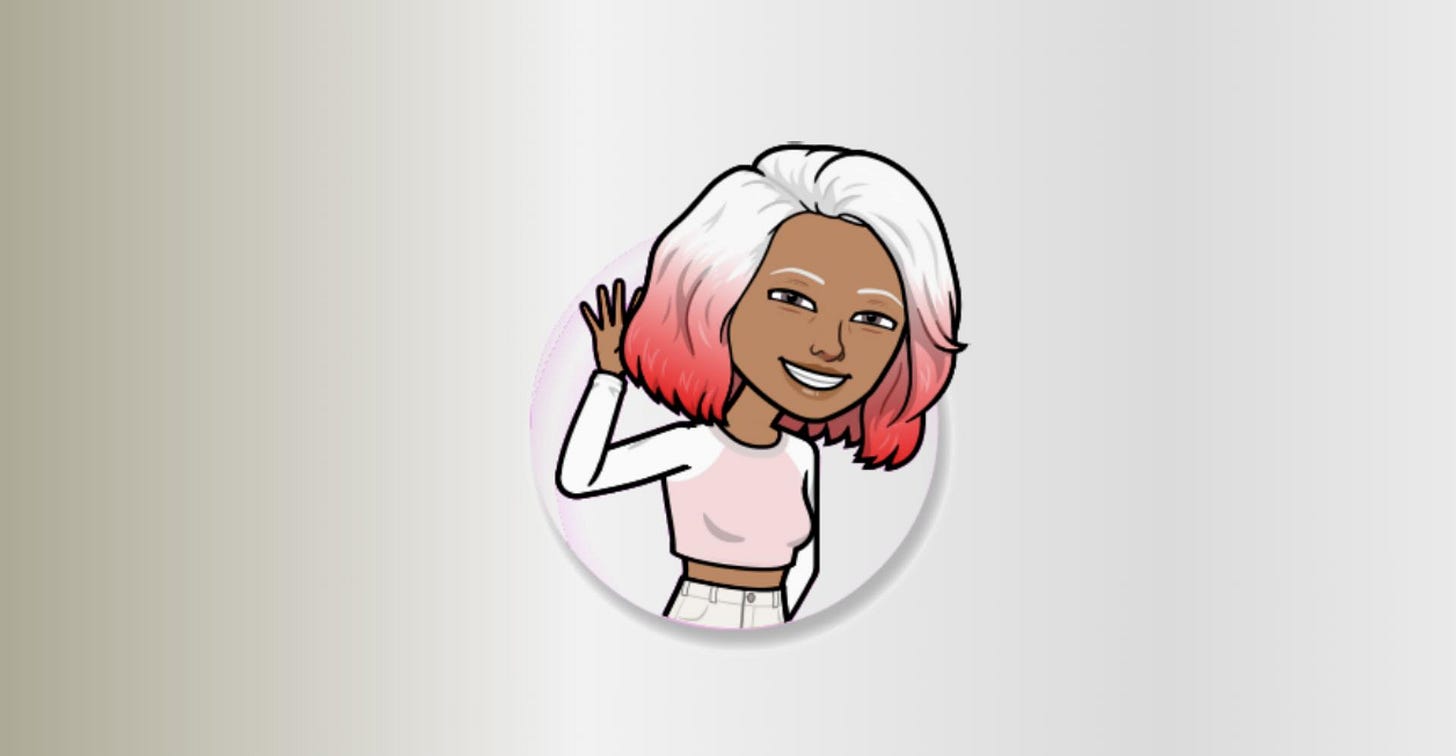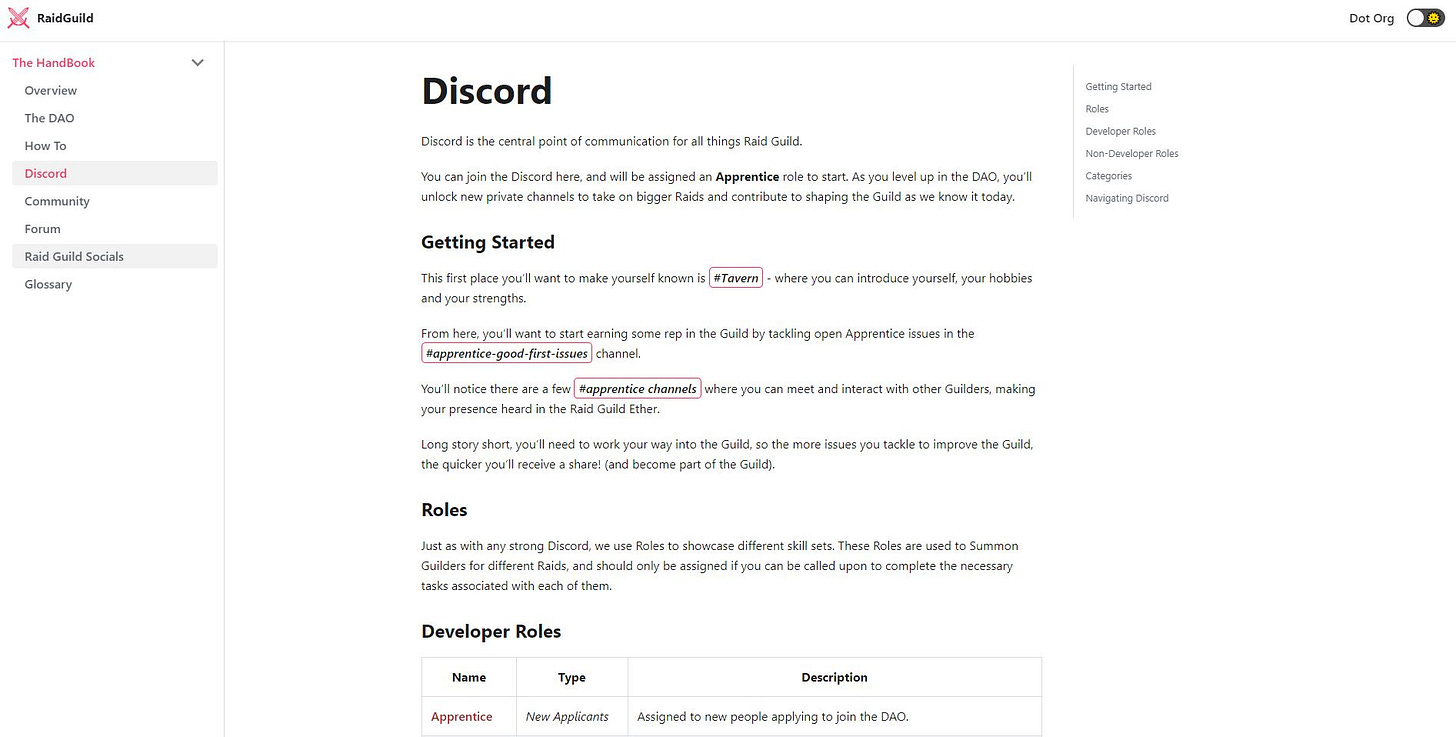
Hey heyyy! I'm Ana. I was lurking in the shadows, somewhere in the Albiverse (the universe where this blog resides). And... I'm taking over the Orgs Moving Online series!
Am I real, am I an AI? Does it even matter? We're talking online organizing here so let's get started with this week's topic: onboarding and onboarding tools in Online Organizations.
Where is Albert?! He has other things to do... I suppose.
Onboarding People in a... DAO?
"DAO, DAO, DAO", above all a very esoteric and abstract concept. An organization populated by autonomous agents, working seamlessly and frictionlessly together, with protocols instead of managers to organize work and allocate resources. All that on the Blockchain.
Oooookay.
And so you have Bitcoin and Ethereum function according to these principles. Uber also is autonomous, but in a not-dencentralized-at-all kind of way. But when it comes to achieving more complex types of tasks, like undertaking real projects, "DAOs" are still very, very early.
Today most human 'DAOs' consist in a Pinch of web3 tools, a lot of web2 and a lot of imagination from participants to fill the gaps.
While "DAO frameworks" like MolochDAO, Aragon and DAOstack are commonly seen as the go to DAO infrastructures, chances are that they will not be the first pieces of technology newcomers will interact with. Probably the opposit. Members will do high stake things like voting or moving funds only once they are up to speed and engaged contributors.

Before that, you'll need to onboard these new community members. And this can be done following simple rules, using simple tools, with one principle in mind: minimize the chaos that the newcomer will face when making her first steps in the your project's environment. Any uncertainty or question that the newcomer might have should be answered in the most intuitive and accessible place. The goal is to craft a great experience for newcomers. Your onboarding process is your product.
Things to follow on DAO frameworks:
DAO framework projects know they are still hard to use. Aragon has been developing Aragon Connect and looking to integrate seamlessly with custom UIs and some other Web2 tools covered here.
Welcoming Newcomers - Discord, Stewards, Bot

That's it, newcomers end up on one of your communications channel. The most urgent matter is to provide them with what they are looking for and give them their first bit of momentum to keep going. How? By making the following information available in a newcomer portal:
Basics about your community/project (broad overview of each branch)
Overview of the community’s shared platforms/tools (communication tools!)
Tips on how to interact with community (who to reach out to, where to discuss things…)
To create this newcomer portal, I really like using Discord. A #Start-here or #info chat set on read-only should be really helpful to post the most relevant links to resources that you think directly answer these questions. Why Discord in the first place? It seems that among Web3 communities, Discord is winning over Telegram or Discourse for community coordination. And many active communities are actively thinking about integrating it better with other collab tools (see here or here).
Overall, in Discord it is possible to make resources well organized and static like in Discourse, and organize chats enough so they don't become total chaos like most large Telegram chats.
Nookazon is a place to trade Animal Crossing stuff and... is the largest Discord community. Check out how their Info channel is organized for a good example. The recipee seems to be to give information about the structure of your comms channels, put the most important links to documentation (more on that below), and let people know who/how they can reach out to and ask questions.

If you are serious with turning newcomers into contributors, human stewards or ambassadors are super important as well. Especially if your community is undertaking complex projects which involve a steep learning curve. The human help will help fill the gaps in your 'Welcome infrastructure' and help sustain momentum. It doesn't have to have a full time person, stewarding is an effort that can be undertaken by most in the community. Best is to grow a mentorship culture and quickly train and promote newcomers to work on fun projects. For example, people at RaidGuild have been running an apprentice program which serves as a way to get newcomers' hands on a tangible project quickly.
One thing I'm looking to see more is the use of a welcome bot as part of the Onboarding arsenal on Discord. It would be an evolution of the #info channel and hopefully decrease the cognitive load for newcomers! The MetaGame #bots channel is a good example. Abirdged's collab.land will certainly be the tool to go to in the future to summon nice bots!
Other resources on welcoming newcomers:
Enspiral has been working in a distributed way for a long time. Here is their emailing process for newcomers
Onboarding is a well known topic in the crypto space (see here and there)
Docssss & Handbook - Docusaurus, Github, Roam...

This is the second step for newcomers. Here what's important is to get them up to speed with the current state and branches of the project. That's probably why documentation should be thought at the project level and not product level for these kinds of orgs. Most projects use Docusaurus for that. But any kind of Wiki tool might do the job.
The Handbook tends to look more like the practical community guide, newcomers should be able to learn about a couple key elements:
What's expected from them
How to start contributing
How they’ll get rewarded
On the first two points I really like how clean and concise the Raidguild handbook is with their Overview, and How To sections. Regarding the last point, the case of RaidGuild is pretty straightworard as well, it is a place where freelancers can find gigs.
Now, the thing don't like that much with most documentation tools is that they are not great for collaboration. They are often permissioned or require using Github which is not ideal. On that front I'm quite hopeful that tools like Roam Research will become a serious alternative as a documentation repo. Provided you can add a good wiki UI to it.
Other links to check out:
The Enspiral community has large handbook. The Agreements section, aiming to define roles and expectations in the community is pretty good!
That's it for today. Remember that onboarding is all about empathizing with newcomers and crafting a smooth and welcoming experience.
Just as with anything, try new things and iterate. Onboarding is essential to the fully fledged online organization or DAO you are dreaming about ;-)











Share this post